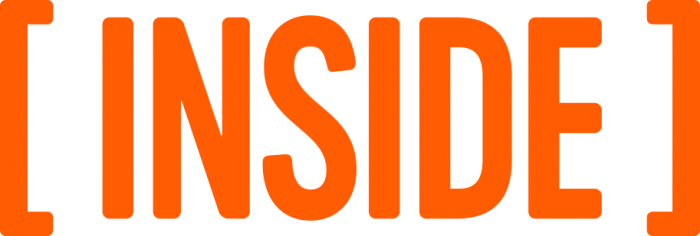In this exclusive Inside interview, Mac Conwell of Rarebreed Ventures discuss the future of investing, success metrics for startups, and founder tips with Inside Business Researcher Jigney Pathak.
Below is the written version of this interview – you can find the originally published version here.
###
Hello readers!
I had the amazing opportunity to chat with McKeever (Mac) Conwell, the founder and managing partner of RareBreed Ventures, a firm based out of Maryland.
We touched on several topics, including:
- His backstory
- Investment thesis
- Advice for founders and aspiring VCs
- Should a founder raise money?
- Why he invests outside of the three big hubs
- The importance of diversity
... and much more. Here are the highlights from our chat!
- Jigney Pathak
Background
Mac Conwell started his career as a software engineer for the U.S. Department of Defense. He is a two-time founder with one successful exit. He worked at the TEDCO — the investment arm for Maryland — where he worked on the seed investment fund. During his time at TEDCO, they were struggling to invest in underrepresented founders, specifically Black-led startups. Conwell was able to start a pre-seed fund called the "Builder Fund," the first and only state-backed fund for women and minority founders in the U.S. Conwell has said it's "something I'm really proud of."
While Conwell was happy with many of the startups he invested in during his tenure at TEDCO, he recounts being frustrated with having to pass on other "equally amazing companies." This is because the founders were "too early" or "in markets people didn't understand." This played a huge role in his decision to start his own fund.
In this video from last June, Conwell outlines his "North Star."

Investment Thesis
At RareBreed, Conwell strives to be among the first investors in every company they back. He mainly invests in companies outside of the three tech hubs: New York, California, and Boston.
He writes checks of up to $250,000 for companies at the pre-seed to seed-stage that have a post-money valuation of up to $10M. He invests in all industries except for life sciences.
As an investor, Conwell looks for two things:
- For software/technology companies, he looks for a unique and clearly repeatable customer acquisition strategy.
- He also invests in startups that have developed physical products for consumer markets that haven't seen innovation for at least 10 years. He considers founders in these "legacy markets" to be "out of the box thinkers that care very intentionally about customer acquisitions, experience, and retention."
An in-depth explanation of RareBreed's nine-point investment manifesto is available here.
Founder and Investor Advice
I know many of our readers would like to one day start their own company or become venture capitalists, so I had to ask Mac for some advice. Here's what he had to say:
Inside: What advice would you give a founder?
MC: I always go back to the idea of distribution over design. Never forget that as a founder, you need to be in-tune with your customers and figure out your customer acquisition. Customer acquisition is what gets you paid, either with funding or revenue. Sometimes I think founders get too caught up in trying to make the greatest, most innovative product, and yes there's something to that. But you also need to make sure people want to use and will pay for that product.
My favorite example is the original iPod. It's the item that was broken and sent to GeekSquad more often than any other product in Best Buy's history. At the height of the iPod, Best Buy had a wall of other mp3 players, and more than half of them were better quality products than the iPod. The iPod is the only one that won because [Apple] figured out the marketing and the customer acquisition strategy, and everybody else couldn't.

Inside: What advice would you give an aspiring VC?
MC: This industry is built on networks. Spend the time building your network now, getting to meet and know other VCs. VC Twitter and VC Clubhouse is a thing. If you start to follow a bunch of VCs on Twitter and go into Clubhouse rooms, send them a DM and Tweet at them. There's a certain portion that will respond and take that meeting. That'll get the firewheel going.
Also start figuring out how you can help companies. Start meeting with startups and helping them. Start trying to create an impact for companies so when the time comes, and you go to an interview, you can tell stories about entrepreneurs that you've helped support along the way and how you were able to find and source amazing companies.
In a previous conversation, Conwell told me that not every company needs to raise outside funding. I asked how founders should decide if they need to raise funding.
Inside: Should a founder raise money?
MC: You have to determine if you want to be venture-backed. Do you want to be on the treadmill raising money? I believe the stat is to reach a billion-dollar valuation, you need to raise on average $89M of outside capital. That's capital across multiple rounds and a bunch of investors. It is money that you get as a tool to grow faster.
Raising money is not a success metric and I think founders and VCs forget that.
You can only grow by the profits you make. If you feel you can grow faster with capital beyond your profits, then venture capital depending on your business model could be right. Those are personal decisions that you have to make as a founder. How do you want to manage your company? What kind of culture do you want at your company? Do you want investors? None of these answers are easy. These are all hard questions that take a long time to think about.

In 2019, 78% of all U.S. venture funding went to three states: California, New York, and Massachusetts. As I mentioned earlier, Mac Conwell looks to invest in companies located outside "The Big 3."
Inside: Why is the majority of venture funding concentrated in three states?
MC: Density of capital, which leads to a density of talent. When you think about the music industry, or if you want to be an actor, what do you do? You go to Los Angeles. It's the same thing, Silicon Valley is where a lot of the stuff got started, and they have a head start on everybody. The density of capital in the region just naturally pulls people to be there. It's the only place on the planet where you can go to a restaurant, and you can find a product manager, a C-level executive at a startup that just raised $2M, or three VCs. It makes it easy for the capital to flow when everyone is densely packed in. Same thing with New York. Massachusetts is where the life sciences and deep tech companies are, and that speaks to the universities in that area. The incentive to go out and find the next great startup, the need to leave where you are, is lessened. I think there's a lot of investors trying to change that.
Investors have had to get comfortable making investments over Zoom and investing in founders they've never met. This means these founders could be located anywhere in the country or the globe. I've met with founders all over the planet in the last six months and a lot of them are people I never would have met before COVID.
Importance of Diversity
In 2019, total funding in all-female founding teams hit a record high of $3.3B. Despite this, it only accounted for 2.8% of total investment in U.S.-based companies. Black entrepreneurs received just 1% of the funding that year. In January, Conwell published a Medium blog post where he revealed that his new year's resolution is to be a catalyst and help 25 diverse aspiring VCs raise funds. I asked Conwell what VCs can do to close the gap and how underrepresented founders can secure funding.
For founders:
MC: It's hard for a founder because they don't have the leverage unless you're already growing really quickly. If you're growing fast enough and generating enough revenue, you have the leverage, you can make it happen.
For Investors:
MC: The onus falls on investors to get beyond their comfort zone. To look at markets they normally don't look at and consider founders of backgrounds they don't normally consider. To be intentional about getting out of their own hubris and expecting everybody to come to them or their network.
Subscribe to the Inside daily newsletter - https://inside.com
Follow us on Twitter: @Inside
About The Writer
Name: Jigney Pathak
Email: jigney@inside.com
Social: @JigneyP
About Mac Conwell
Company: Rarebreed Ventures
Social: @MacConwell
More From Inside.com
Newsletters: Inside Newsletters
YouTube: Inside On YouTube
Radio Show: Know Your Stonks
Podcast: Inside Business







